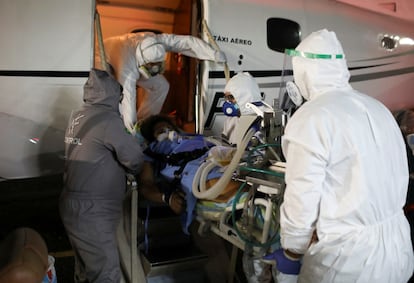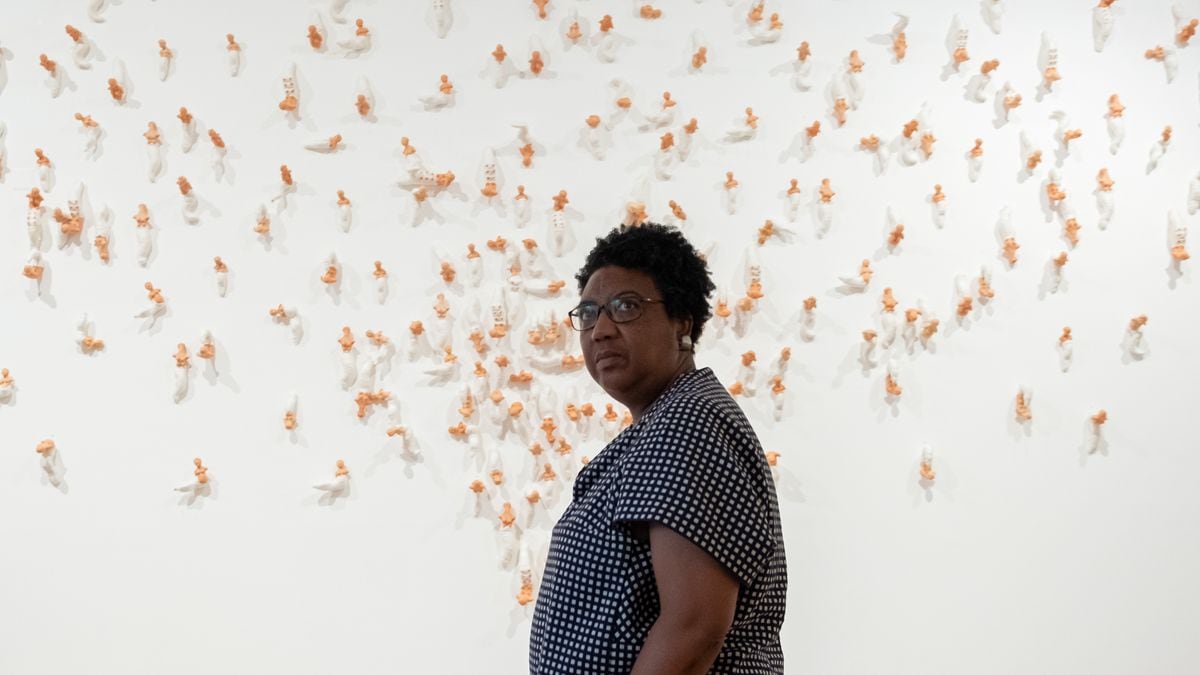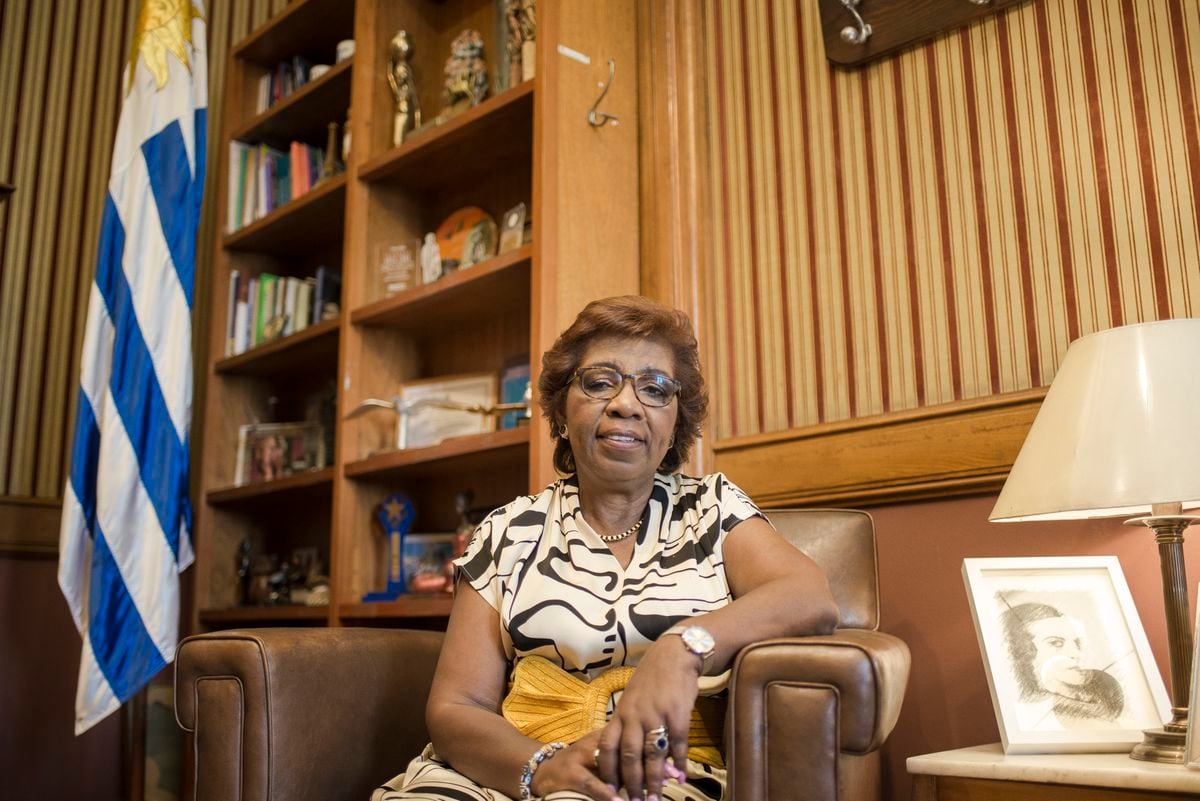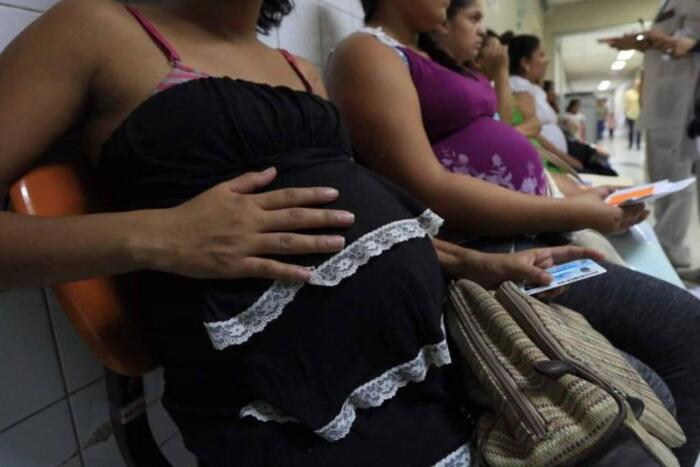A pregnant woman infected with covid-19 is transferred to a hospital in May 2020, in Manaus.BRUNO KELLY / Reuters
Lidiane was pregnant with her second child.
He worked at a funeral home inherited from his father, a family business.
Every day she wrapped and embellished the bodies of the dead for the last goodbye.
He had never worked as hard as during the COVID-19 pandemic in Rio de Janeiro.
Already pregnant, it was she who prepared her father for the funeral ceremonies.
She was the second daughter of three sisters and the only one who combined the craft of caring for the dead with the art of dressing them, putting on makeup, and fixing their hands and eyes.
She was not allowed to get sick for intimate and altruistic reasons, say her sisters, Erika and Monika: her income depended on the funeral home, and caring for the dead was never as necessary as during the pandemic.
But Lidiane worked in fear.
She worked until 40 weeks pregnant, when she began to feel pressure spikes.
She arrived at the maternity hospital and was diagnosed with anxiety.
An emergency cesarean section was the opposite of the humanized delivery she had dreamed of.
After delivery, she began to wheeze and complain of shortness of breath.
Without having undergone the COVID-19 test, she was discharged with a psychiatric prescription for the postpartum period: she suffered from panic and anxiety disorder, doctors said in her record.
He stayed home for two days and, although his discomfort increased, he tried to return to the funeral home to work.
Lidiane was preparing to care for a family requesting care for a relative who had died of covid-19 when one of her sisters forced her to return to the hospital.
At the hospital door, the line of patients mingled with hearses;
"It was a scene of war," said his sister.
All of this happened in April 2020, during the first wave of the pandemic in Brazil.
Now we live the third.
Little was said then about the risk that the virus posed to pregnant women.
In the first countries where the virus circulated, studies still did not indicate that pregnant women were at higher risk.
This was the case in China, Japan, South Korea, Singapore, Spain or Italy, countries with low birth rates and few pregnant women.
Until the virus reached Brazil, where a July 2020 study showed that the fatality rate up to that point had been 12.7% among pregnant and postpartum women.
The study also revealed a relationship between these deaths and the failure of the health system: 15% of these women did not receive respiratory assistance, 28% did not have access to the ICU, 36% were not intubated or received mechanical ventilation.
Another study published in July 2020 showed how structural racism increased Lidiane's risks of suffering a tragic outcome: pregnant and postpartum black women had a risk of death from Covid-19 almost twice that of white women.
Lidiane must have been one of the numbers in these studies: she was intubated and spent 16 days in the ICU.
She died alone, on May 15, 2020, of cardiac arrest, having previously received the experimental treatment with hydroxychloroquine that, still today, is defended by President Bolsonaro and the Federal Council of Medicine of Brazil, despite the ineffectiveness demonstrated by science. .
At the ICU they performed the covid-19 test, but the family never knew the result.
Lidiane's body was handed over to the family in a black bag sealed with police criminal investigation tapes.
There was no ritual or care of the body.
Six people watched her for 15 minutes in a room where it was not even possible to approach the coffin.
The sisters kept a photograph of the moment: a wooden coffin with gold trim.
There were no flowers or messages of condolence.
On the floor, a black and yellow police tape marked the distance between the mourners and the sealed coffin.
The sisters are still investigating, as best they can, the truth about Lidiane's death: they show copies of the medical records, they listen to the witnesses who treated her in the ICU, they try to follow the case in the Maternal Death Committee of Rio de Janeiro.
For the sisters, there is no doubt: Lidiane died as a pregnant black woman, dependent on a healthcare system rooted in the structural racism of Brazilian society.
For two months I have been listening to stories of mothers, sisters, husbands and sisters-in-law of women with covid-19 who died in pregnancy, childbirth or the puerperium.
This is how I learned about Lidiane's story and spoke with her sisters, Erika and Monika, and with Amanda, a niece, who accompanied her in prenatal care and with whom she had the last conversation before dying in the ICU.
I have heard dozens of stories, in a universe clouded by the figures that estimate more than 500 dead women.
The number of pregnant women killed by covid-19 had started to decline in September 2020, but increased again in 2021: 17 women in January alone.
According to a report by the Pan American Health Organization (PAHO), five out of every hundred pregnant women infected by covid-19 did not survive: that means a fatality rate nine times higher than the average for the Americas.
Brazil is the epicenter of maternal death from covid-19 in the world: if we are the worst country in the world to experience the covid-19 pandemic, we are also the worst country in the world for a pregnant woman to expect childbirth at this time .
In particular, for poor and black pregnant women, Brazil is the worst country in the world to survive the pandemic.
Debora Diniz
is a Brazilian anthropologist and researcher at Brown University
Subscribe here to the EL PAÍS América newsletter and receive all the information keys on the region's current affairs








/cloudfront-eu-central-1.images.arcpublishing.com/prisa/IM7XQZJXVCJOYNFKVCL6PFXGB4.jpg)
